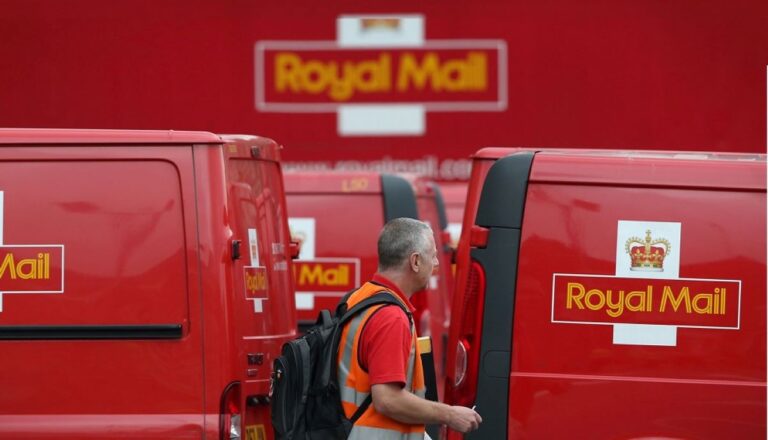In an exposé Gareth Roberts reveals the grim reality behind the Royal Mail'ss iconic red vans and offers an exclusive account of the depot disaster.

For Gareth Roberts, a stint at the Royal Mail was supposed to be a return to the UK’s quintessential institution of mail delivery, a job brimming with tradition and community service. However, what he encountered during his tenure as a parcel delivery driver at a West Sussex depot painted a starkly different picture, one marred by neglect, chaos, and disillusionment.
In an exclusive exposé, Roberts lifts the veil on the grim reality lurking behind the iconic red vans and familiar postmen, offering a firsthand account of the Royal Mail’s descent into disarray. Roberts’s journey began with high hopes and expectations. The Royal Mail, deeply woven into the fabric of British society, seemed like a bastion of stability and reliability. Yet, as he stepped into the West Sussex depot for the first time, he was met with a scene reminiscent of a post-apocalyptic wasteland.
The depot, he describes, appeared abandoned and dilapidated, devoid of modern technology or basic amenities. It was a far cry from the efficient, state-of-the-art operation he had envisioned. Amidst the chaos of the depot, Roberts found himself grappling with the challenges of tacking package deliveries amid the disarray and dysfunction.
The vans, Roberts notes, were a microcosm of the organization’s decay. Dilapidated and held together by little more than duct tape and grime, they mirrored the state of the institution itself. Inside, the cabins were rife with the stench of stale smoke and energy drinks, a testament to the grueling nature of the job and the toll it took on its drivers.
But it wasn’t just the physical infrastructure that was crumbling; morale among the workforce was equally battered. Roberts recounts conversations with veteran employees, who lamented the privatization of the service and its transformation into a profit-driven business. For many, the Royal Mail was no longer a service but a soulless corporation, indifferent to the well-being of its employees and the communities it served.
Staff turnover was alarmingly high, with many drivers leaving due to the arduous conditions and unrealistic targets. Agency drivers, brought in to fill the gaps, often struggled to navigate unfamiliar routes, exacerbating the sense of chaos and despair within the depot.
Roberts’s observations shed light on the stark divide between management and frontline workers. Communication was sparse, and grievances were met with indifference or dismissiveness. The once-proud tradition of delivering mail to every corner of the country had been replaced by a focus on profit margins and corporate interests.
Perhaps most troubling were Roberts’s insights into the prioritization of parcels. While the Royal Mail prided itself on delivering mail to every household, regardless of location, Roberts discovered that parcels from major retailers like Asos and Amazon were given precedence, leaving some areas neglected and underserved.
Despite these challenges, Roberts acknowledges the dedication of the rank-and-file employees who continue to toil tirelessly to keep the mail moving. Their commitment to their communities and the service they provide is unwavering, even in the face of adversity.
As Roberts bid farewell to the Royal Mail, he left with a sense of disillusionment and disappointment. The once-revered institution he had hoped to be a part of had fallen short of its ideals, leaving behind a trail of broken promises and unfulfilled potential.
In the end, Roberts’s account serves as a sobering reminder of the fragility of tradition and the perils of neglect. The Royal Mail, once a symbol of British resilience and reliability, now stands at a crossroads, grappling with an uncertain future and the ghosts of its past glory.








